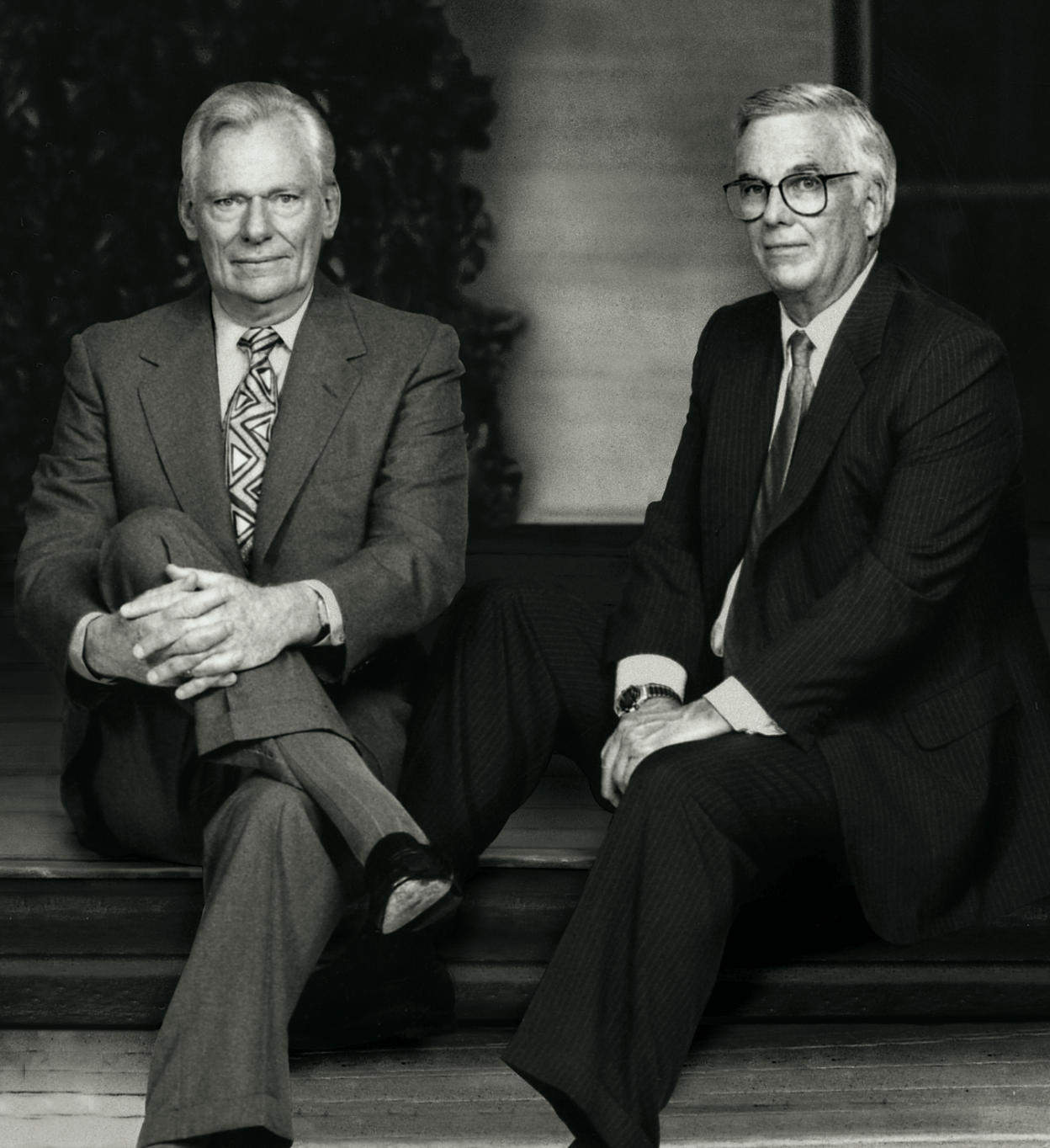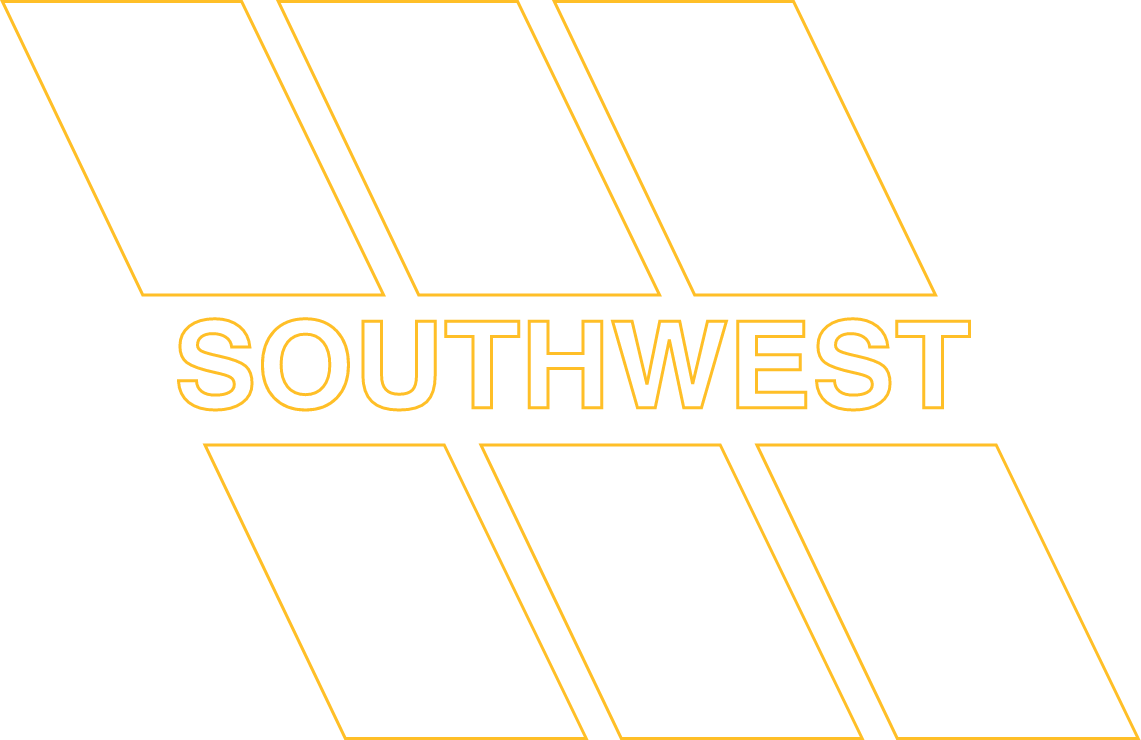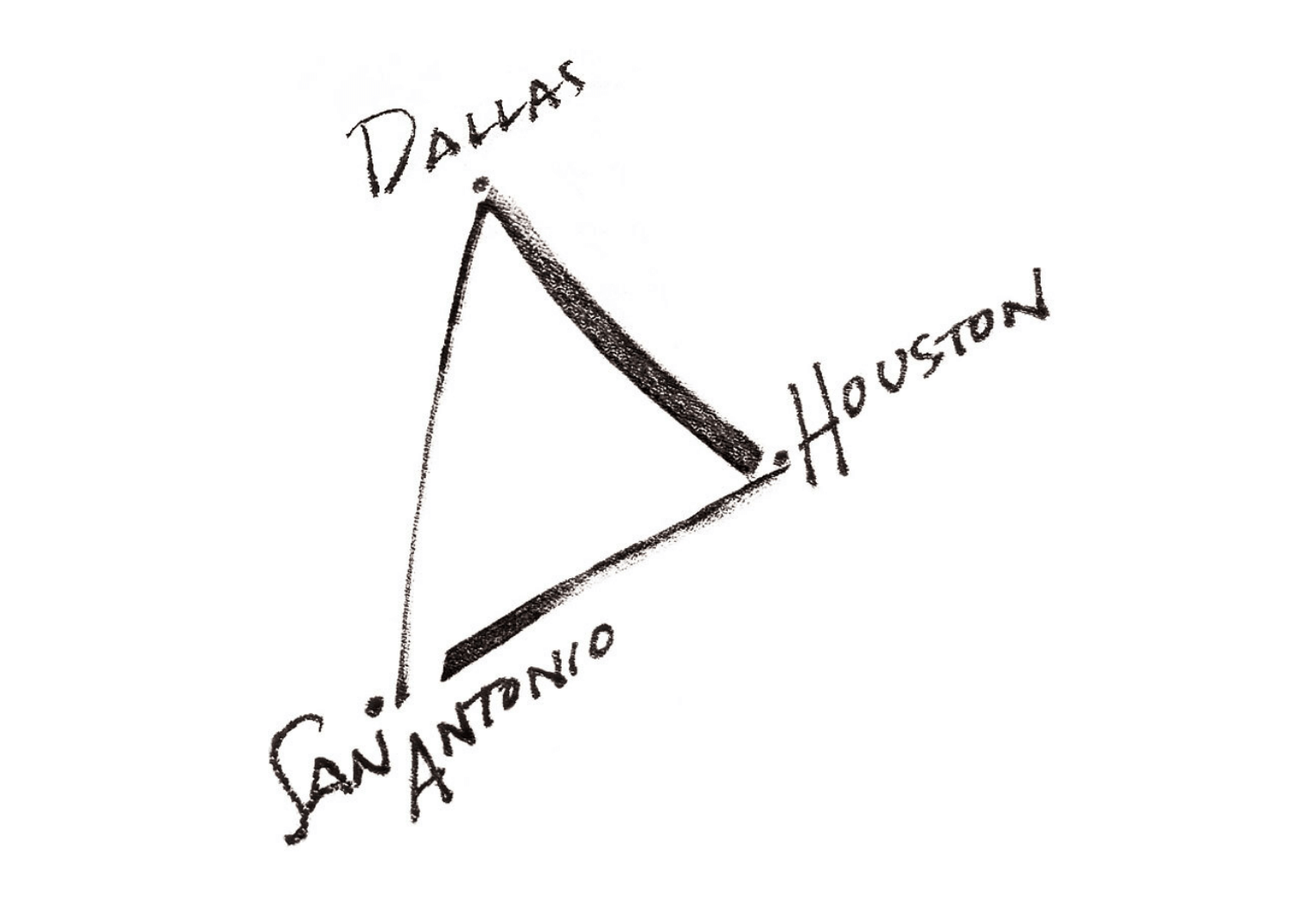
Southwest Founders Herb Kelleher (left) and Rollin King
Herb & Rollin: The Birth of Southwest Airlines®.
Initially, the pitch didn’t just sound far-fetched, it sounded like the stuff quick-fire bankruptcies were made of. Then again, long faces and even longer odds rarely dissuaded the visionary, Rollin King. One afternoon in late 1966, the entrepreneur strode confidently into the San Antonio offices of his lawyer, Herb Kelleher, to double down on a business bet everyone assumed was a losing play.

Rollin King, amateur pilot and dreamer extraordinaire, hoped to launch a new airline: a short-haul intrastate carrier built to quickly and economically shuttle Customers between three of Texas’ biggest cities: San Antonio, Dallas, and Houston.
The fact that King was paying Herb to liquidate his current airline—fittingly named the Wild Goose Flying Service at its inception—didn’t dampen his enthusiasm one bit. King figured the struggling venture deserved to be put out of its misery, in part because he’d thought too small by serving only small Texas towns from Uvalde to Eagle Pass.
The knowledge that most intrastate airlines, outside of California, were struggling mightily didn’t faze King, either. In fact, he pointed to the growing strength of Pacific Southwest Airlines, a California intrastate carrier, as further validation for his plan. He saw striking similarities between Texas and California, which both possessed vibrant economies and large cities spread too far apart to easily travel by bus or car.
Understanding Texas culture, King had a hunch that bigger really was better when it came to flying the Lone Star skies. Bigger cities paired with bigger planes would provide more flight options and generate more stable profits. Besides, King’s idea had been inspired by research being conducted by a local banker, who’d championed his idea. That struck King as a positive sign.
Herb didn’t say much at first. Everyone knew that traveling between San Antonio, Dallas, and Houston was a royal pain. Plus, Herb, always a big-picture thinker, foresaw potential auxiliary benefits as well: namely, that greater flight options might boost local economies.
Although Herb was honing his reputation as a disciplined corporate lawyer, he possessed a maverick streak of his own. He ascribed to the creed, “If it’s conventional, it ain’t wisdom, and if it’s wisdom, it ain’t conventional.”
He could sense even early on that the plan’s underlying philosophy—low fares, reliable service, greater freedom, and efficiency in traveling across the state—could transform the local aviation industry for the better.
Initially, Herb couldn’t help but shake his head over the sheer moxie of it all. But then he did what any good lawyer would do: He asked to hear more—over a few stiff drinks.
When the two Texas transplants—Herb had graduated from NYU Law School; King from Harvard Business School—continued their discussion over cocktails at the nearby St. Anthony’s Club, King fleshed out his plan. He knew an intrastate carrier wouldn’t be subject to the onerous Civil Aeronautics Board (CAB) regulations that hampered so many upstart airlines.
To further illustrate his vision, King grabbed a cocktail napkin and sketched a simple triangle, positioning Dallas, San Antonio, and Houston at each corner. He then connected the dots, calling his makeshift route map “The Texas Triangle.”

The Texas Triangle
In the years to come, a giant bronze replica of the napkin would be created to memorialize the moment—and the purpose-driven, low-fare model the two men championed would transform the entire industry rather than just the Texas skies. But at the time, it was nothing more than a business idea scratched on a flimsy napkin.
Herb was warming to the pitch. If there was one thing he appreciated, it was a complex idea made simple. Yet he still saw a 10-gallon-sized hole in the center of it all. “Where,” asked Herb, “would we get the capital?”
King responded, “Capital? Oh, I guess we’ll have to raise it.” Herb dipped his head and rubbed his eyes to buy himself a moment of thought, although he’d likely already made his decision. When he returned his gaze to King, he said, “Rollin, you’re crazy. Let’s do it.”
In that moment, the two men’s wildly different yet complementary strengths intertwined to create a greater whole. Disruption met discipline. Innovation found purpose. Vision discovered efficiency. And these philosophies became enduring pillars of a transformative new airline.
Less than a year after King sketched his vision for the future on a napkin, he had Air Southwest Co. formally incorporated on March 15, 1967, changing its name to Southwest Airlines Co. four years later. In the decades to follow, the Company would leverage its Culture and Employee-first ethos to rise to new heights, while democratizing and streamlining air travel for the masses.
The Southwest Founders would play a key role in that lift. After Herb accepted the position of Chairman in 1978, he retained that title until 2008, while also serving as Chairman, CEO, and President for two separate stints: first from March 28, 1978, to August 21, 1978, and then from February 23, 1982, to June 19, 2001.
King, meanwhile, was the first President at the airline’s inception and then served as Executive Vice President of Operations during the Company’s first four years of flying and remained a member of the board for 39 years, until his retirement in 2006.
Through the 50 years of triumphs and challenges to follow, one constant has remained: Southwest has held firm to its toss-the-rulebook origin story as well as the unique mix of vision and pragmatism that drove its initial architects. The early flight path was set, even if the actual runway had not yet been cleared.
Classic Herbisms
When Herb Kelleher, the legendary Founder of Southwest Airlines, passed away on January 3, 2019, at the age of 87, he left behind a legacy of wisdom and insight as inspiring and transformative as the Company he forged. His achievements and influence are so multifaceted—touching so many People in so many different ways—that they are impossible to distill. Yet Herb’s colorful array of personal mottos, referred to simply as “Herbisms,” may capture his true spirit most effectively of all.
These phrases still echo through the halls of Southwest, sometimes in slightly amended forms, and linger in the memories of Employees, Customers, and fellow business leaders alike. Here is a sampling of some of the words of wisdom that Herb made legendary:
